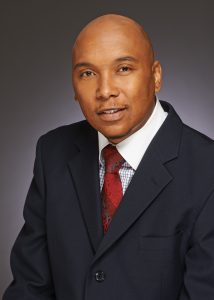(Note: This story appears in the May 2022 issue of ED Magazine)
The EXPO’s “ED University” Certification Security Seminar will see three experts — Charles Wilson, Gary Sikorski and JC Pomerleau — speak on diverse areas of club security, including conflict de-escalation and cybersecurity.
As the world becomes increasingly connected and digital, so too is the potential for devastating cybercrime attacks heightened.
And while cybersecurity attacks in the news seem to be of the world-altering kind, it doesn’t mean your club is flying scot-free below the radar. Truth of the matter is, your computer has all kinds of valuable information that is a boon to cyber criminals (think bank account numbers, social security numbers, addresses, credit info, etc.).
The 2022 EXPO will feature a club security seminar focusing on two distinct security points: cybersecurity and conflict de-escalation.

JC Pomerleau, IT Director for Go BEST!, a resource for the hospitality and nightlife sectors founded by Jason Mohney (see this issue’s cover story), will be speaking along with security professionals Charles Wilson and Gary Sikorski at the seminar.
ED Magazine spoke with Pomerleau about some of the finer points of cybersecurity and why it’s so vital moving forward.
ED: How much more of an emphasis are you seeing on cybersecurity efforts given the current events going on?
POMERLEAU: Let’s start with the understanding that the world has become increasingly digital and interconnected. Cyber crime is here to stay, and data breaches are not going anywhere. With that said, we have seen a greater emphasis dedicated to cybersecurity as more and more high-profile breaches occur each year.
ED: How can gentlemen’s clubs — long considered a ‘cash business’ — be at cybersecurity risk without recognizing it?
POMERLEAU: Yes, agreed, gentlemen’s clubs are considered a cash business. However, that does not exclude us from being an attractive target. If you have accessed your banking information from one of your club’s computers, you are at risk and so is all that cash money that was just deposited.
In addition to our banking information, we possess other information that has great value. Our human resources data such as full names, social security numbers, birthdates, addresses, and phone numbers make us an attractive mark.
Hackers are counting on you to think that you are not at risk. As a club owner/operator, please understand, you have exactly what they want.
ED: What’s the biggest misconception you see when it comes to gentlemen’s clubs and their cybersecurity efforts?
POMERLEAU: The common misconception of any small business is that you are not large enough to attract the attention of cybercriminals. In actuality, hackers do not care how much money you have in your account, they want whatever amount you have and any personal identification information that resides on your servers.
The second misconception is that IT solutions are not affordable for small business or club owners. Protecting your data from cyber attacks is not expensive. The reality is that if you are hacked, the ransom would be many times greater than the amount it costs to set up proper cybersecurity.
ED: What’s one easy, first step gentlemen’s club owners/operators can take to improve their cybersecurity?
POMERLEAU: How about we do the one, two, and three Go Best Practices to get our friends started.
First, make sure your business computers, software, and firmware are updated regularly. Secondly, safeguard your internet connection by using a firewall (computer hardware or software that prevents unauthorized access to private data by outside computer users). Third, backup and encrypt your sensitive files and please delete/shred the contents of your downloads folder regularly — I’m sure we may all have potentially forgotten about a few sensitive legal documents, bank statements, or credit apps that are still residing there.
The common misconception of any small business is that you are not large enough to attract the attention of cybercriminals. In actuality, hackers do not care how much money you have in your account, they want whatever amount you have and any personal identification information that resides on your servers. — JC Pomerleau
Conflict de-escalation is a critical component of effective club security
Similar to how cybercrime has evolved, Charles Wilson believes in-person security tactics must also keep pace with the industry landscape. Wilson and his partner with Strategic Club Consultants, Gary Sikorski, will be presenting the “Conflict De-escalation” portion of the EXPO’s Security Certification Seminar.

According to Wilson — a decorated former Detroit Police command officer with 20 years of law enforcement and chief-of-staff experience — de-escalation and threat assessment starts the moment the club opens and guests begin to walk in the door and is a fundamental component of the training of today’s club security professional.
“The guests view the clubs as entertainment venues, no different than a concert or casino,” Wilson said in 2020, when he was set to helm that year’s EXPO security seminar. “Operators can’t assume just because a security person has years of experience that they’re trained to not use force unless it’s the only recourse. Your security staff must be specifically trained, with periodic reviews, on understanding how to recognize and verbally de-escalate situations.”
Wilson further explains, “Security should always be the guest’s friend, not their foe.” Establishing this rapport, he suggests, helps minimize the likelihood of physical use later, or conflict escalation.

“Our goal in these (conflict de-escalation) situations isn’t really to ‘control’ the person or situation because it’s almost impossible to control someone else,” says Gary Sikorski a decorated law enforcement professional and trainer with over 30 years of experience. “Instead, we want to influence them to control themselves. It often comes down to our behavior in response to them.”





























